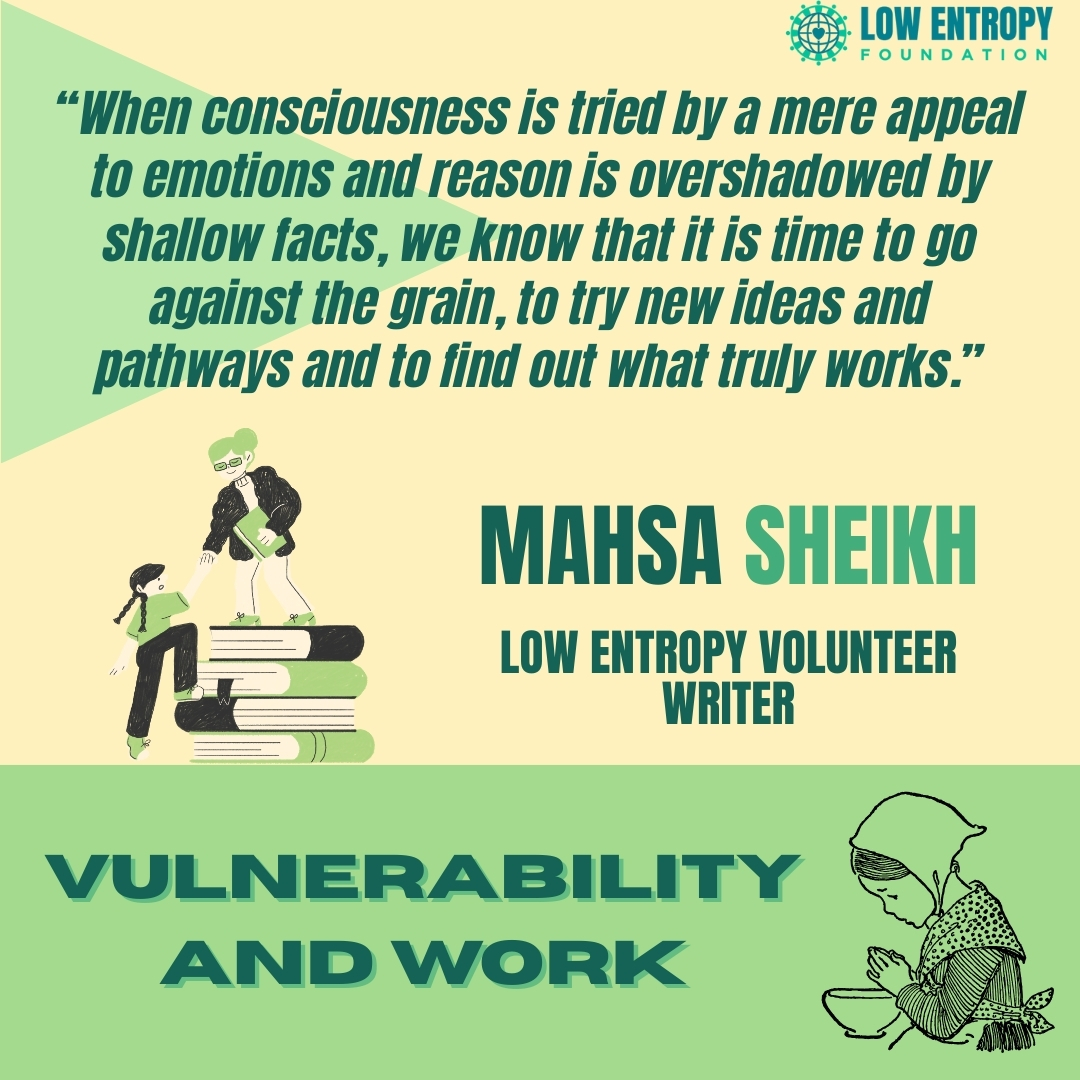Mahsa Sheikh, Low Entropy Volunteer Writer
Please note that this piece contains brief reference to violence against a child.
Modern societies owe much of their existence to a maturing understanding of the relation between childhood and work. The child in the modern age is no longer understood as a miniature adult fit to work a job that demands being away from home for hours or days at a time, struggling oftentimes to survive under the harsh conditions of working on a cotton farm in the countryside, at a glass bottle factory located in the outskirts of a nearby town or on the dusty and crowded streets of a new urban area where there is hardly any hope to find a way out of misery and mischance. Modern society indeed wants better for its youngsters, believing that children will most likely reap better rewards from investing their time learning new skills and focusing on their growth and development, rather than being thrown at a young age into harsh physical labour that knows no end, dulls the mind and hardens the soul.
Efforts to end child labour across the world continue; many organizations and industry leaders have stepped up to reclaim children’s right against forced labour. Others have replaced their labour with automation, setting policies and regulations to monitor child recruitment at such facilities.
The shocking story of Iqbal Masih, the celebrated Pakistani child labourer who was shot at the very young age of 12 while cycling with his peers, can further illustrate the plight of children who are sold by their families and forced to work to pay back debts accrued by their parents. Iqbal’s death, likely at the hands of Pakistani “carpet mafia,” did not silence the truth, and it never does. Child labour, as well as various forms of latent slavery, raise stark questions about the conditions in which humans in different societies are treated in the name of the welfare and happiness of their fellow inhabitants, in particular the immediate community they tend to be serving and those of us who can afford to contractually live off of the cheap labour of such and such workers to attain moderate peace and comfort. And yet no single individual or entity should be blamed for relying on products or services accessed through cheap labour. As a matter of fact, misunderstanding systemic failures with such breadth and magnitude in that way can be felt as an unwelcome burden, resulting in the erosion of the public’s trust and confidence in the governing processes and institutions that moderate problematic practices related to labour and justice. When consciousness is tried by a mere appeal to emotions and reason is overshadowed by shallow facts, we know that it is time to go against the grain, to try new ideas and pathways and to find out what truly works.
If the philosophy known as rationalism is celebrated for its reconfiguration of the relation between childhood and work, arguing on behalf of the development of a child’s faculties and the importance of education and learning at a young age, the period marked by empiricism furthered our understanding of adulthood and its boundaries, creating an awareness of its importance in our lives. Missed opportunities, setbacks, difficulties to adjust to new circumstances, financial worries, social anxieties, family tensions, etc . . . can push an adult to have conflicted feelings about how they are going about their lives. At these times, lack of communication or access to education and support can become trying to the individual and make them feel lesser than an adult. When crisis calls, it can affect young and old, binary and nonbinary individuals, rich and poor. Many health professionals today advocate to take time off, wind down, and if and when possible, meet a counsellor to address concerns around everyday worries, prioritize self care and plan out our lives to achieve goals like better physical health and financial wealth. Basic principles such as these can easily be dismissed, often at the expense of one’s immediate success and growth.
Once seeds of happiness and achievement are sown in youth, meeting luck and fortune, one way or the other, is almost guaranteed. Advocating for awareness around issues concerning human vulnerabilities is more than ever felt in our age. Aiming for the child’s—or the adult-in-transition’s—true potential is key, as it may lead them towards what comes next in their lives—work and opportunities for growth!
—
Leave your thoughts for Mahsa in the comments below. You can also follow us on Facebook, Instagram, TikTok, LinkedIn and YouTube to stay up-to-date with Low Entropy news!

